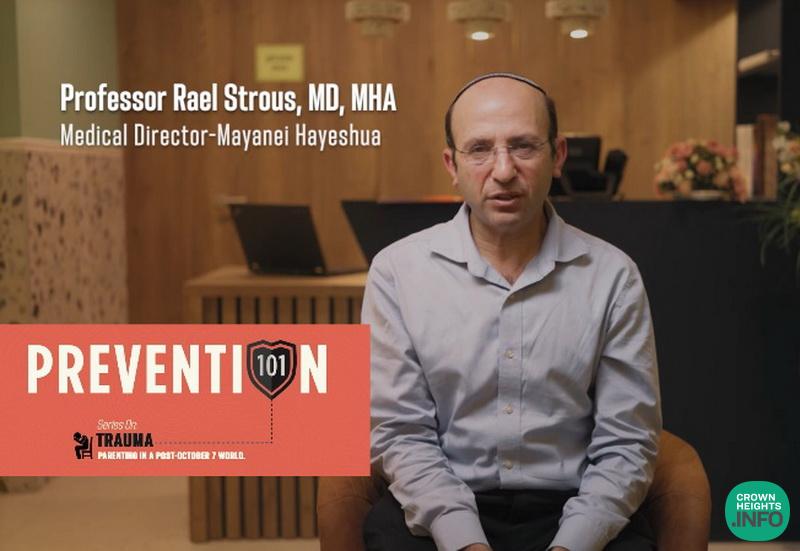
Prevention101: Series on Trauma: Episode #9 – What Percentage of Trauma Victims Experience Long-Term Effects of Post-Traumatic Stress Disorder or Go on to Use Drugs?
Series on Trauma: Episode 8 – Parenting in a Post-October 7th World. The series addresses questions regarding trauma following the massacre of October 7th and the surge of global anti-Semitism.
What percentage of trauma victims experience long-term effects of post-traumatic stress disorder or go on to use drugs?
Two types of experiences may be traumatic for an individual. One type of traumatic experience is disruptive to the person’s life, such as divorce, failing an exam, or being fired from a job. The other type of trauma involves situations where a person’s life is in danger, such as a terror attack, a car accident, an earthquake, a tsunami, or any circumstance where a person faces a potentially life-threatening situation.
Individuals in the second category are at risk for a unique cluster of symptoms that we call PTSD or post-traumatic stress disorder. Fifteen to twenty percent of those individuals develop PTSD. (One exception to this percentage is women who are exposed to sexual trauma, such as rape, where closer to sixty to eighty percent develop post-traumatic stress disorder). When we consider the fifteen to twenty percent of individuals who develop PTSD, about sixty percent or two-thirds of them will go on to develop a drug or substance abuse disorder.
When we examine all those who have developed substance abuse in the entire population, about two-thirds of them had trauma in the past. So, there are two ways to interpret these statistics: 1. Of all those who have gone through trauma and developed PTSD, two-thirds will also struggle with substance abuse, or 2. Of those who struggle with substance abuse, two-thirds have experienced trauma. Trauma significantly increases the risk for substance abuse later. This is because substance abuse often serves as self-medication for low mood stemming from dealing with numbing experiences and helps a person feel alive again. It is also related to dysregulated biological mechanisms where a person cannot experience rewards and uses drugs to achieve reward sensations.
People respond to traumatic situations differently. Every person has a different level of resilience and ability to cope. That’s why not everyone who experiences the same trauma goes on to develop PTSD. This also explains why not everyone goes on to develop a substance abuse disorder. Suppose a person is resilient to the extent that they don’t experience the situation as trauma, in that case, there’s no necessary reason why that should increase the risk for substance abuse later. It’s only those who have developed a traumatic response, either a partial or full PTSD response, that then go on to develop a substance abuse disorder because of that trauma.













